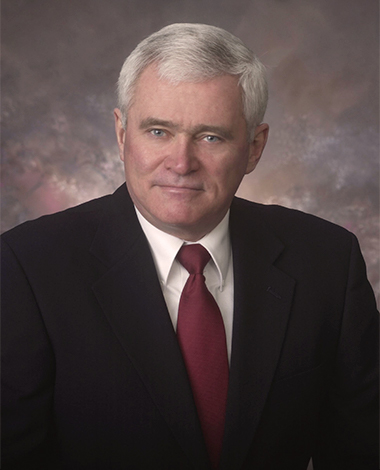An Extraordinary Career Is Capped – Finally – by a Baccalaureate
 The metaphysical poet George Herbert inspired Roger Utnehmer’s first two career choices. The Wisconsin broadcaster par excellence and former Door County (Wis.) Daily News chief started out wanting to combine the priesthood with political life.
The metaphysical poet George Herbert inspired Roger Utnehmer’s first two career choices. The Wisconsin broadcaster par excellence and former Door County (Wis.) Daily News chief started out wanting to combine the priesthood with political life.
He entered the St. Norbert College seminary in 1969, but his vocation only lasted a year. (“I realized the pope would never negotiate about celibacy.”) Another setback followed when he was defeated in his bid for the Wisconsin Senate at age 22. But his political spirits were lifted when working as an aide for Clifford “Tiny” Krueger, the legendary Democrat senator. “I still believe that the greatest opportunities to transform the world are in the church and politics. Tiny and I used to debate the finer points as we drove around the back roads of Wisconsin. He quoted a lot of Martin Luther at me.”
Immersion in the life of the state Legislature led to Utnehmer’s career-defining move to local broadcasting. He became general manager of WATK Radio in Antigo, Wis., in 1977 and, within four years, opened his own FM radio station.
”Tiny had instilled in me what a positive influence government could be for the common good, and I realized broadcasting could also be for the common good, make small communities better places to live and speak for people who cannot speak for themselves.”
He renewed his connection with the Norbertines in the late 1980s while running a station in Eagle River, Wis. “I have always had affection for the Norbertines. I bought my father Grimbergen Abbey beer every Father’s Day, knowing I would eventually get to drink it myself.” A lecture by Norbertine economist the Rev. Brendan McKeough ’47 on the workers’ cooperatives of Mondragon in Spain inspired a career break that Herbert would have enjoyed.
Utnehmer handed his radio stations over to his employees using the Mondragon Corp. inverse-pyramid model in which the power rests at the bottom of the hierarchy. Then he joined a Norbertine community in a pueblo joven (shanty town) on the outskirts of Lima.
“The Norbertines in that situation were living proof of liberation theology. They inserted themselves into an extremely poor community, provided a beacon of hope and a social safety net – the difference between life and death for many. I supported the priests by helping with social programs so that they were freed up for sacramental ministry.”
The parish projects included soup kitchens, pharmacies and a clinic – “the only medical care within reach.” Meanwhile, Utnehmer realized that the key to achieving social change lay in finding paid work for the women of the community – “it was women who were holding families together and taking the lead on the social programs” – and remembered that, back in Wisconsin, he had developed on-air shopping shows, radio versions of shopping channels.
He set up a successful knitting cooperative, which employed 100 women to knit alpaca sweaters that were then marketed in Wisconsin through his radio networks. “They were very good-quality sweaters. I’ve still got one.”
The values Utnehmer absorbed in Peru have lasted as long as the sweaters.
“My heart is still in Peru. I was introduced to the most indescribable poverty that I escaped by sheer chance of birth. I’m now on the boards of several organizations working for human rights and social justice. There needs to be a return to an awareness of social justice and the Gospel message that there should be a more just distribution of wealth.”
Utnehmer says he meant to stay in Peru for five years, but after two years the inverted pyramid needed tending. He became a key player in Wisconsin broadcasting for half a century, active in the Wisconsin Broadcasters Association (as board member, chair and state lobbyist) and sharing good practice in the International Radio Idea Bank (a peer consulting group for broadcasters in the U.S., Canada and Australia). His citations on the Wisconsin Broadcasting Museum’s Hall of Fame are peppered with words like “cheerleader,” “storyteller” and “motivator.”
In September 2019, after he sold his company Nicolet Broadcasting (five radio stations and two news websites) to his sales manager, his first retirement project was to go back to St. Norbert College to finish the theology and philosophy degree he’d begun as a seminarian.
“I just had two philosophy courses to complete. I like to finish what I’ve started and I want my grandchildren to learn to follow through and complete their projects. I think there are thousands of people like me who are one or two courses away from completing a degree. Online learning has now made it easy to do this, although, for me, returning to campus two days a week was an important and enjoyable part of the experience.”
What next? “I’d like to do my part to restore civility to public discourse and transparency and honesty to government.”
July 28, 2020











